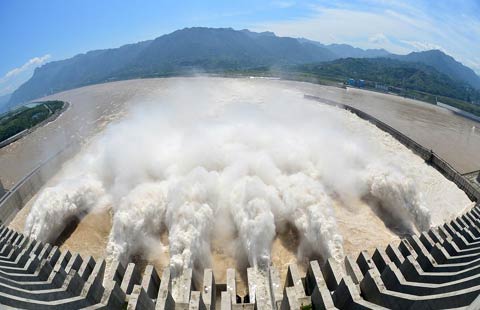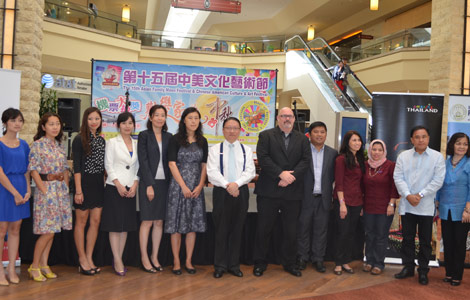Red Cross upgrades disaster centers
Updated: 2014-09-03 09:09
By Zhang Yi(China Daily)
|
||||||||
The Red Cross Society of China on Tuesday upgraded eight of its disaster preparedness centers to national level to give full play to their role of providing emergency relief.
Wang Ping, director of the society's Relief and Health Department, announced the decision, saying the centers have been certified by an evaluation group from the RCSC and the International Federation of Red Cross and Red Crescent Societies.
The assessment was based on five criteria - logistics, technology, information, management and service.
The centers are in Liaoning, Zhejiang, Hubei, Guangdong, Sichuan, Yunnan, Shaanxi provinces and the Xinjiang Uygur autonomous region. They were previously classified as provincial or regional level.
It is the first time the RCSC's senior officials have talked about the organization's warehouses, which are used to store disaster relief equipment and supplies, since a scandal involving its national center in Beijing become public.
A company was allowed to rent space at the center for commercial use for two years. When the irregularity was exposed, the RCSC ended the contract and promised to remove all property belonging to the company by Aug 31.
The center in Beijing's Shunyi district is the country's largest and was built in 2010 with 117 million yuan ($19 million) of government funding.
Zhao Baige, executive vice-president of the RCSC, referred to the scandal at Tuesday's meeting but did not elaborate.
She said the centers are of great significance for disaster relief and expressed the hope that they will play a larger role in the future.
Wang said the RCSC began to build regional centers in the early 1990s and had established six by 1998. By July 2013, there were 350 centers at all levels covering a total area of nearly 138,000 square meters with total storage capacity of 355,000 cubic meters.
He said the centers are well equipped but that further software improvements in the areas of management, personnel and information technology are needed.
"We will make further efforts to manage all our warehouses at three levels and hope the centers in Beijing and Shanghai will carry out disaster relief not only in China but also elsewhere in Asia," Wang said.
Several hours after Zhao addressed the meeting, a statement on the RCSC official website announced she was no longer the society's executive vice-president. The statement praised her leadership. Xu Ke, currently vice-minister of the National Health and Family Planning Commission, was nominated to succeed Zhao in the RCSC post.
zhang_yi@chinadaily.com.cn
Most Viewed
Editor's Picks

|

|

|

|

|

|
Today's Top News
Hotline set to help out Chinese overseas
Minorities outnumber whites in US public schools
Water use casts doubts on future of shale gas
US doctor in Liberia tests Ebola positive
China's August PMI decreases, but slightly
Monopoly probes treat firms equally
Gene to fight Parkinson's discovered at UCLA labs
China's Uncle Sam ready to test US market in NYC
US Weekly

|

|















